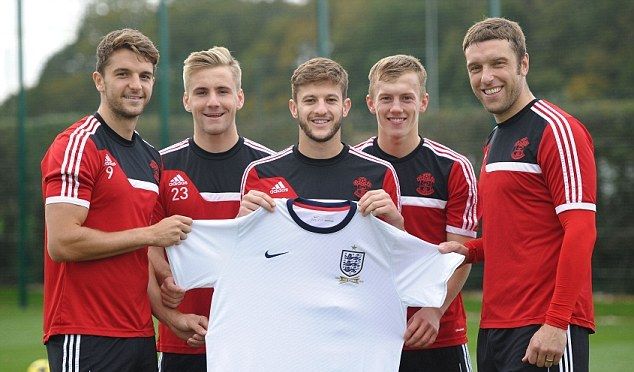
Selling valuable players: The harsh reality of club football
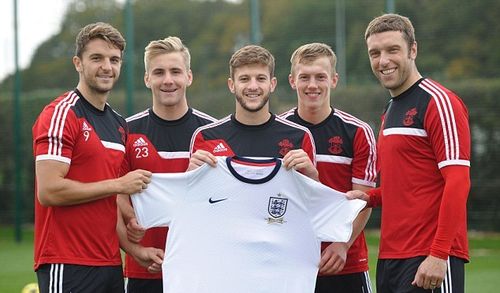
“We’ve known each other since we were eight.” said an enthusiastic, and seemingly jingoistic Luke Shaw of his team-mate James Ward-Prowse last December. There was no separating Luke Shaw and Mauricio Pochettino, Adam Lallana and England’s South Coast, Rickie Lambert and St. Mary’s Stadium, Southampton and their young cubs (and a slightly older lion). It appeared as though these cubs would fight to the grave together, paw in paw, rather than be separated, for money, for fame, or most likely, a star-studded bench.
The chairman of the club’s board- Ralph Kreuger, even went so far as to say that despite the debts owed by the club, 'players sales would not be factored in’. ‘Water may be sweet, but blood is thicker’ was the message these Saints had issued to their suitors.
Apparently though, all that staunch refusal and stubbornness has counted for nothing, Ralph Kreuger’s assurance has counted for nothing, Luke Shaw’s maudlin mumbo jumbo has counted for nothing and my water-blood analogy has counted for nothing as half the Southampton starting eleven has ‘migrated to greener pastures’, with none other than Luke Shaw leading the exodus with his headline-grabbing 30 million pound move to the Theatre of Dreams.
You’d think a plague hit the South Coast, as Adam Lallana, Rickie Lambert, Callum Chambers and Dejan Lovren followed suit, quicker than you could say ‘Mauricio Pochettino’, who also incidentally left the club. Rumour has it that this is only the beginning, and many more of Southampton’s cubs are to follow.
“We will not sell Shaw and other valuable stars” -Katharina Liebherr, owner of Southampton FC
To call the situation at Southampton sad would be a massive understatement, for the batch that moved out drew comparisons with Manchester United’s Class of ‘92. However, this is not the first time this has occurred, as West Ham too, with the likes of Michael Carrick, Joe Cole, Jermain Defoe and Frank Lampard plying their trade together at the turn of the century, had the potential to live upto Manchester United’s legendary set.
But, as was the case with the Saints, the Hammers too, being a relatively small club, had to relinquish these players, to larger clubs. In fact, this is not even the first time this has occurred in Southampton, as they have produced greats like Alan Shearer and Martin Chivers, and contemporaries like Gareth Bale, Theo Walcott and Alex Oxlade Chamberlain, none of whom they could hold onto.
Therefore, it was no surprise that what happened did happen to a relatively small club like Southampton, for history has an uncanny trait of repeating itself. And relatively big players have the uncandid trait of abandoning their humble makings to graze on ‘greener pastures’. This happens in two ways:
Case A: Big clubs with lots of money come calling
Clubs falling under this category are relatively-small and are prone to painful, handicapping transfers. Almost every small club teeming with talent falls under this category, as it is the norm. They are what you could term sell-because-we-are-poor-and-have-no-choice clubs, or, simply put, involuntary selling-clubs.
THE RUSSIAN HIJACK
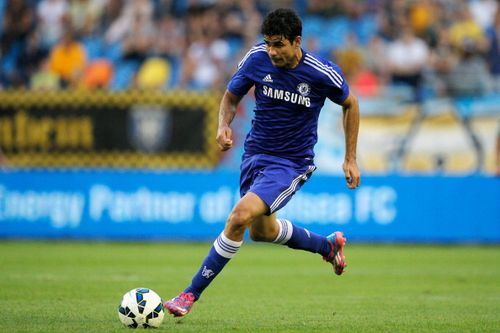
It is no secret that Chelsea has envied Atletico Madrid since Radamel Falcao pumped three past Petr Cech in the 2012 UEFA Super Cup finals. It is also no secret that they had been ardently pursuing Falcao since that routing. The West Londoners also have a proclivity towards showing the world just how deep their pockets are. The club have the predisposition of being extravagant and sometimes even wasteful, splurging big bucks and recruiting bigger ducks, often out of boredom. It is also no secret that Roman Abramovich is Russian.
Therefore, when Atletico allowed Falcao to move to Monaco, they were throwing down the gauntlet to Chelsea. Chelsea, in turn, did what the rich, do best, and that is, accepted the challenge. In place of Falcao, Chelsea acquired Diego Costa, his able deputy-no-more and Filipe Luis, who was the wrecker-in-chief in the Champions League semi-final, apart from reclaiming what was rightfully theirs- Thibaut Courtois. Atletico Madrid now boast of a core that is non-existent.
And that is what happens when you pick a fight with a Russian oil-baron.
THE BO(RUSSIANS) HIJACKED
41 years following the gruesome Munich Massacre of 1972, the Munich hijack of 2013 involved, not only the ransacking of a rival-team’s prized possession, but also the raising of angry fists, the burning of previously sacrosanct jerseys, shouts of ‘treason, treachery and betrayal’, not to mention stars warming benches with honour.
Mario Gotze, dashing and debonair darling of der BVB, having plied his trade there for all of 14 years, was snapped up by Germany’s great and powerful Bayern Munich for a healthy 37 million pounds, weeks after he had committed his future to his boyhood club. To see someone who you once loved dearer than your own son move to a rival-club left Borussia fans reeling from despair. Therefore, it is no surprise that Borussia fans today liken him to Judas.
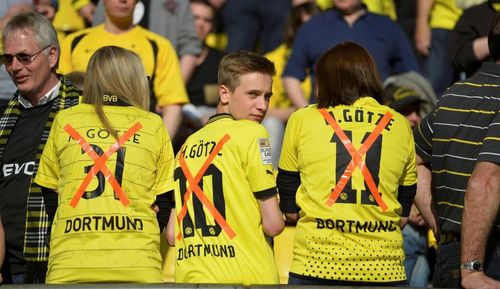
If poaching Borussia’s son was not enough, Bayern also snatched Robert Lewandowski from them, thus completing their merciless hijack. The fact that the Pole was captured for absolutely no cost rubbed salt in their already deep wounds.
Noteworthy mentions: Chievo Verona, West Ham United, Shakhtar Donetsk.
Case B: Clubs that sell voluntarily – Ex(Porto)
This category contains the extremely few exceptions to the norm. Clubs that full under this category are not small in any sense of the world, but, as a rule, are not the most popular or the biggest clubs in their respective countries. They are what you could term voluntary selling-clubs.
The paragon of such, without a shadow of doubt, is FC Porto. They run a side-business of selling players, as a full-fledged business; yet, they are not crippled by this. They defy the most elementary of economic laws, and sell their best, only to find ten more even better players waiting in their wings. Hulk, Falcao, James Rodriguez, Joao Moutinho, Pepe, Luis Fabiano, Diego, Ricardo Carvalho- they ship out players of such ilk year after year, yet they have won the Primeira Liga 9 times in the last 12 seasons.
Not only that, the Dragao are also European heavyweights, qualifying for every edition of the Champions League over the last ten seasons (winning it in 2004) save one time, and that one time, Porto ended up as Europa Cup Champions.
As a selling club, FC Porto are second to none. To call their dealings shrewd would be unfair, for their dealings are nothing short of ingenious. Over the years, the Blue and Whites have devised a method of selling that even the meanest wholesaler in the world would envy, a method of selling players in batches. ‘If you want one, take ‘em all’ is how they negotiate with clubs with bigger bank balances, and end up minting money in the process.
If you thought selling Carvalho and Ferreira to Chelsea was smart, selling the entire batch of Maniche, Costinha, Derlei, Nuno and Seitaridis to Dynamo Moscow was a coup de maitre. Five players in one deal?! Unheard of.
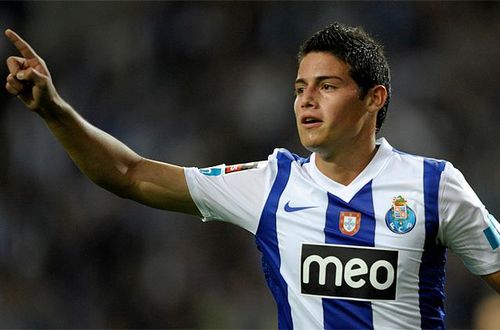
What really makes FC Porto a notch above the rest is not their expert salesmanship, but incredible insight in recognising talent, far-sighted foresight in preparing replacements, judicious judgement in knowing when to sell and perspicacious planning for generations afterward. A perfect example of such would be the rotation of their centre back slot over the years.
While no other club can hold a candle to Porto at selling-strategy, Arsenal too deserve mention, for while their so-called farmer’s approach of ‘fattening up cattle before selling it’ has come under a lot of flak, it has not left them any less potent, as they always rope in worthy replacements, or nurture their own academy players instead. The fact that Arsenal have qualified a whopping 17 times for the Champions League is proof enough that they are not direly affected by their liberal selling policy.
Noteworthy Mentions: Daniel ‘Don’ Levy’s Tottenham, Udinese, Benfica.
Conclusion
Save the odd exception here and there, the footballing world and transfer market are like society today. As Karl Marx so rightly put it, “The rich get richer, and the poor get poorer.” The transfer market is like a free enterprise capitalist society, where the big clubs that deal in tens of millions of pounds call the shots, and the small, poor clubs have no way of protecting themselves from being looted of their talent. To quote the Bible, “For whosoever hath, to him shall be given, and he shall have more abundance: but whosoever hath not, from him shall be taken away even that he hath.” That is the ugly truth about life. And that is the ugly truth about club football.